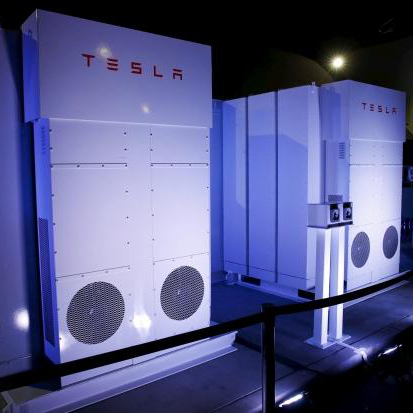Ergon to trial new tech ahead of revolution
 Electricity companies could soon roll out the next big energy revolution - offering large home battery systems to customers.
Electricity companies could soon roll out the next big energy revolution - offering large home battery systems to customers.
In a bid to get an edge in a busy market and retain existing customers, companies are testing hybrid solar/battery power systems for homes.
Battery technology is considered the next big thing in the increasingly democratised energy market, but they are still too expensive for most people to install.
John Grimes of the Energy Storage Association has told ABC reporters that power companies are trying to fill the gap.
“This is going to happen, it's going to be a big phenomenon,” Mr Grimes said.
“So they need to study and learn the technology and understand how they can interact and ideally how they make money from embracing this technology, rather than resisting it.”
Queensland’s Ergon Energy is installing the hybrid systems in 33 houses for a commercial trial this year, supply batteries and software supplied by Sunverge.
Ergon Energy chief executive Ian McLeod said the company should be able to spend less on upgrading its electricity network, because household batteries would provide power in peak times.
“We do see it as one of our key solutions for network constraints to reduce our investment down the track,” Mr McLeod said.
While the current trial will cost over $2 million, Mr McLeod says the batteries are becoming cheaper.
“We know the cost of batteries are going down,” Mr McLeod said.
“We know some of the price paths and some of the different chemicals so this is all about getting ready for that price point where it makes sense.”
The Australian Renewable Energy Agency (ARENA) is involved in the trial too, and its CEO Ivor Frischknecht says power companies would all soon need to change.
“They're just simply going to buy fewer electrons, buy less energy from their traditional power companies, so by being in the game, by actually selling batteries, by leasing them to end users, by putting solar panels on people's houses, those retailers and networks can be part of the future in a bigger way,” Mr Frischknecht said.
But it does not mean the end of the traditional grid, as some renewable energy advocates envision.
Mr McLeod said that even amid the battery revolution, there would be a continued use for existing infrastructure.
“Our network is the only thing that connects all customers and resources together,” Mr McLeod said.
“So whether the cheapest resource is from the Sun, or from the local tip or the sugar mill or down the road from a centralised generator or over at your neighbour's place, it's the grid that connects it all.”







 Print
Print